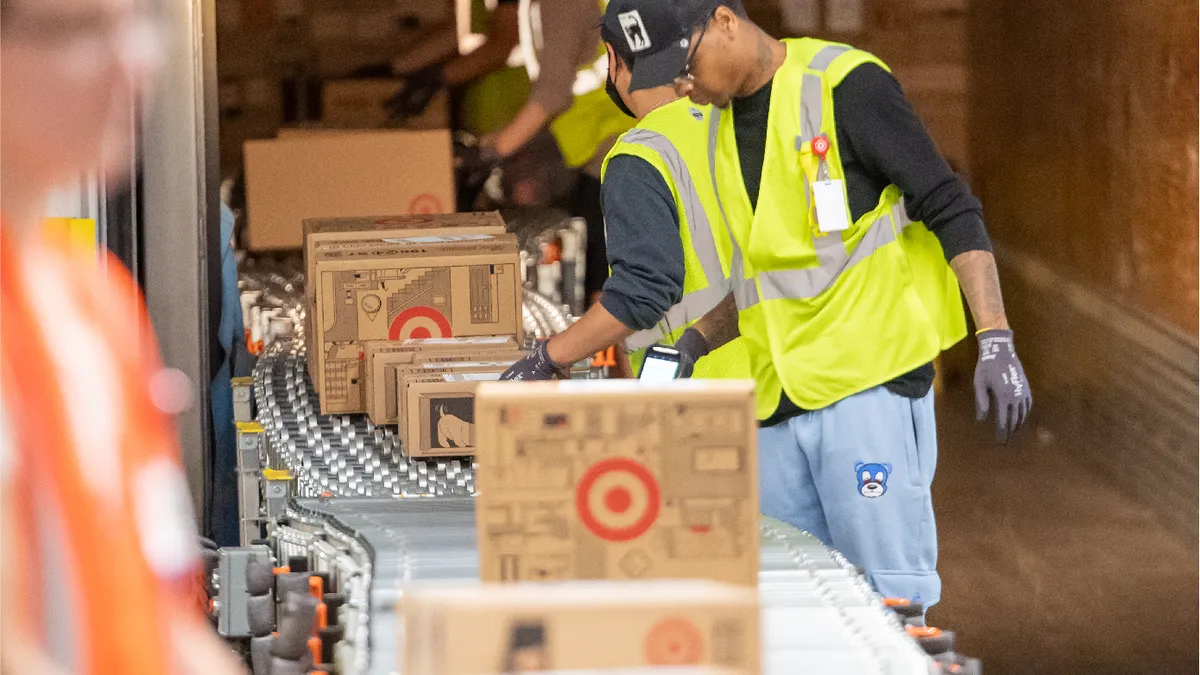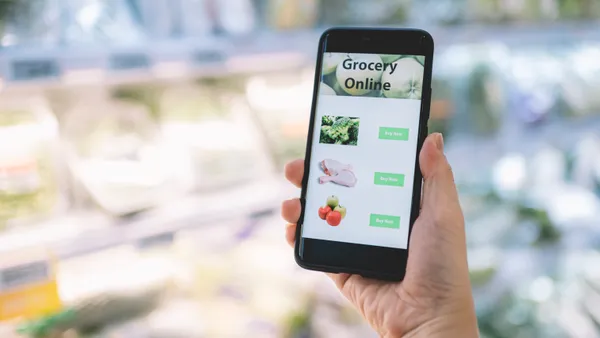Dive Brief:
- Target announced a $100 million investment Wednesday to expand next-day delivery capabilities through the addition of more than six new sorting centers.
- The retailer plans to grow its sortation network from nine to more than 15 facilities by the end of 2026. The company said the centers will expand next-day coverage “across major U.S. markets,” though didn’t specify locations.
- Target expects to deliver roughly 50 million packages from its sortation centers in 2023, twice the amount of last year. Since opening its first facility in 2020, the retailer said it’s seen a 150% increase in the number of orders delivered the next day.
Dive Insight:
The new facilities continue to build upon Target’s stores-as-hubs strategy, which leverages retail space for fulfillment services. The centers eliminate workers’ need to sort packages in backrooms, opening up space to pick and pack more orders.
Sortation centers also consolidate orders and batch deliveries, easing the job for carriers. To speed transportation even further, Target is piloting a project at two sortation centers to allow drivers with the retailer’s Shipt delivery service to utilize larger routes with larger-capacity vehicles.
“Through our sortation centers and Target Last Mile Delivery capabilities, we’re able to move faster and with more precision — while controlling costs and expanding our network capacity — for years to come,” Gretchen McCarthy, Target’s chief global supply chain and logistics officer, said in the release.
Under the stores-as-hubs model, a Target-controlled truck can go to different stores multiple times per day and bring packages to a sortation center. From there, packages are placed on conveyor belts and automatically sorted by ZIP code before they’re loaded into delivery vans.
“That enables us to get packages to guests faster and in fewer physical deliveries with all of your packages arriving at the same time,” Rebecca Swartz, director of global supply chain and logistics, said in a video accompanying the announcement.
Target announced last summer that it would add three sortation centers to its network, including two in the Chicago metro area.














